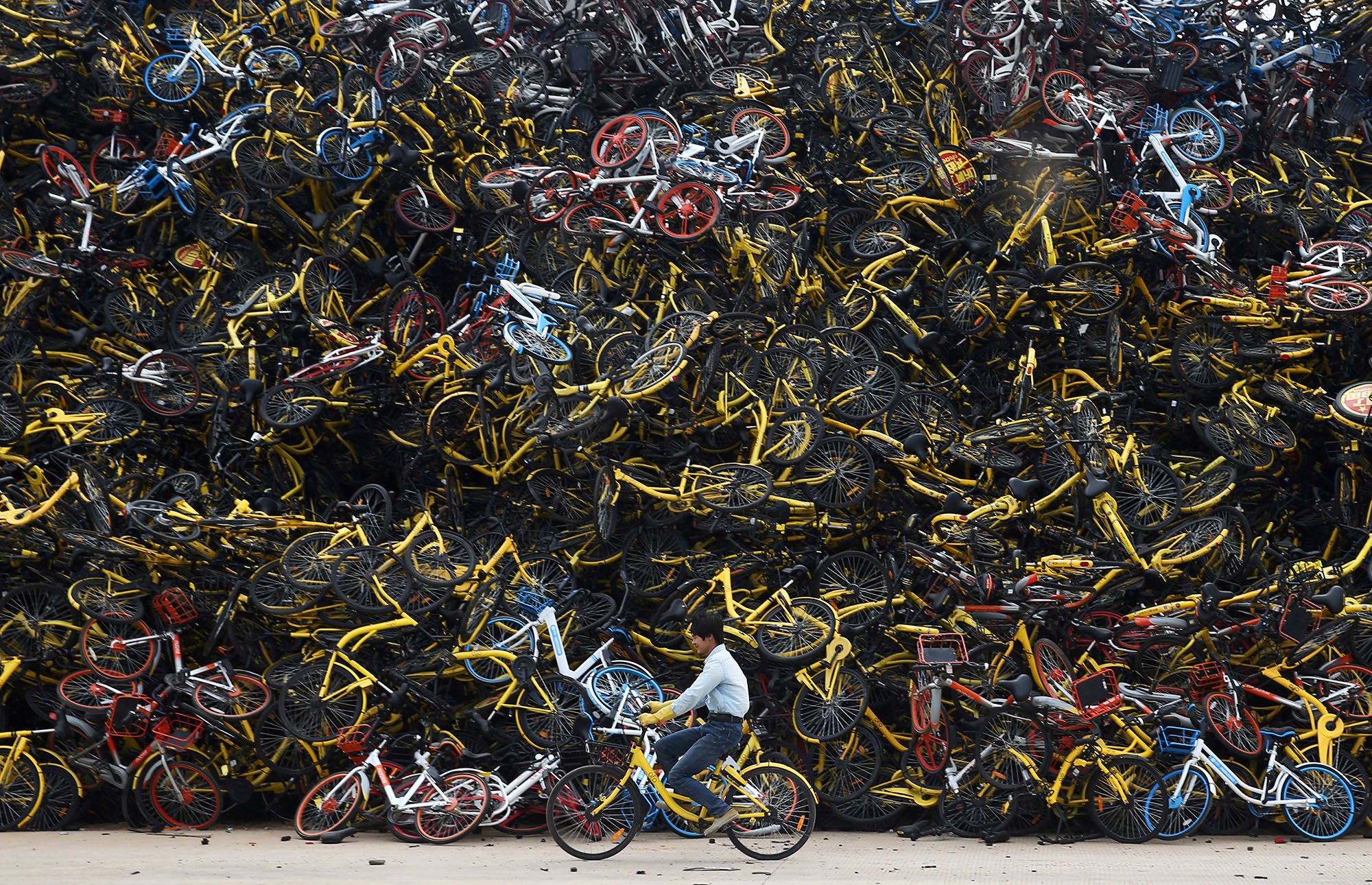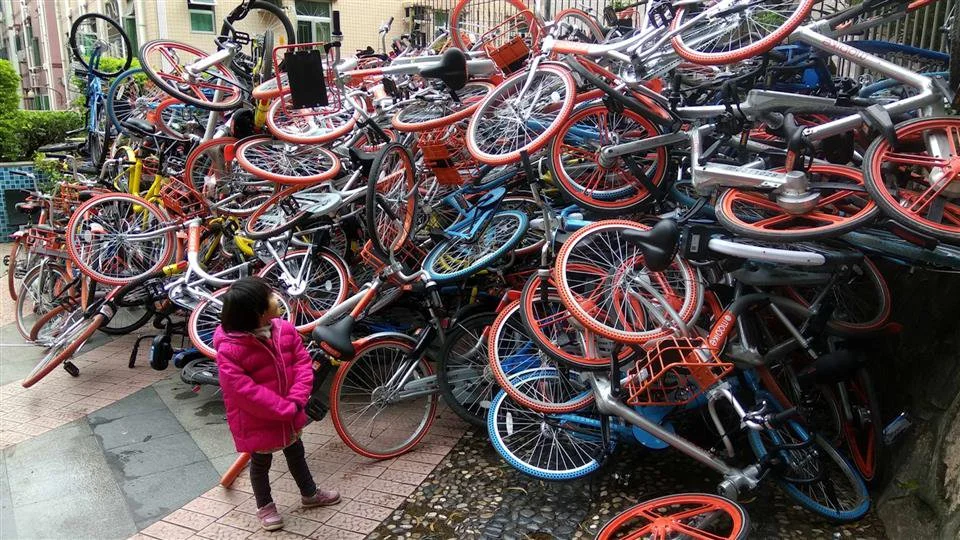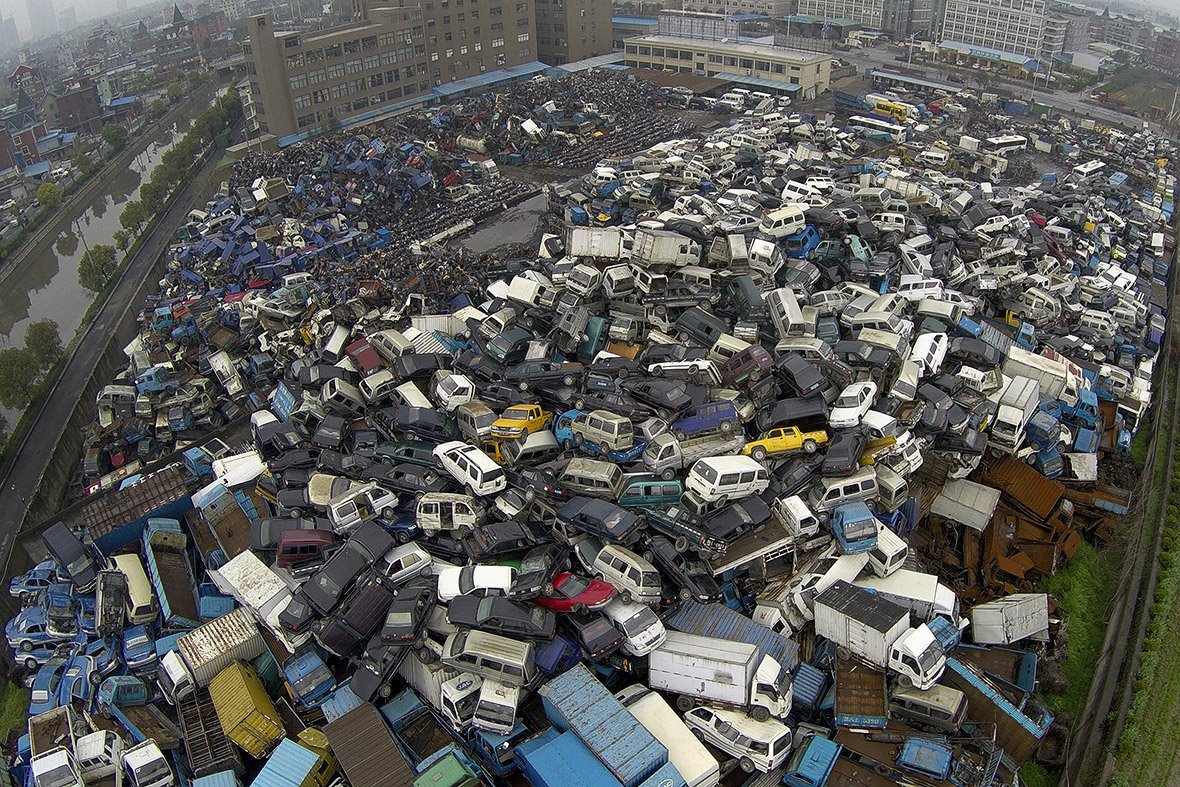Why Micromobility Waste Is Irrelevant
I get asked a lot about the waste from #micromobility - e-scooters, and those big piles of Chinese shared bikes.
They definitely wear out faster and have short lifecycles. Lime's average 45-60 days. Look at all that waste!!
Here's why that's the wrong way think about it.
The average Chinese bikeshare bike weighed 20kgs at most. There were 25 million of them deployed over the last few years and are mostly scrapped by now.
But here's the thing.
In aggregate, those 25m were made from steel that weighed about half a million tons (25m*20kg=500k tons).
Your average car weighs 1600kgs/3500lbs. So all of the Chinese bikes that have been produced to date equate to around 300,000 cars.
For reference, that's only about 1-2% of what the US will *scrap* THIS YEAR. Man, if you worry about this waste, I have a pile of used cars to show you.
Plus, we are trying to deploy scooters and e-bikes that were largely designed for consumer recreational use into commercial shared use cases where they get thrashed. They're very fragile. We don't have 100 years of evolution and refinement like the car has had.
Source: Chester Energy and Policy
It's understandable the tech sucks.
You can see this in the new designs from Bird and Lime - they're now building scooters that will last 6-12-18 months now.
They’re more incentivised than anyone to make these things last longer to improve their unit economics.
Spending all their VC money replacing scooters all the time means their business is going to succccccck.
It's largely useless to look at the waste now and compare it to where things will be in even 2 years from now. The quality of vehicles is improving super quickly. Waste will minimise as we refine the use cases and better design for them.
I’m not saying it’s not an issue.
I’m just saying that it’s irrelevant when we’ve got a burning planet and these solutions are obviously better on so many other dimensions.
As an aside, I really appreciate the work that Chester Energy and Policy has done in this space. While they’ve looked at where things are today, and I’m more bullish about how quickly they’ll improve, they’ve provided great initial research into this space.
Interested in learning more? Sign up below, check out the Micromobility Podcast with Horace Dediu and myself, or come and join us at Micromobility Europe in Berlin on October 1st.
Update: I cited the graph from Chester Energy and Policy.




